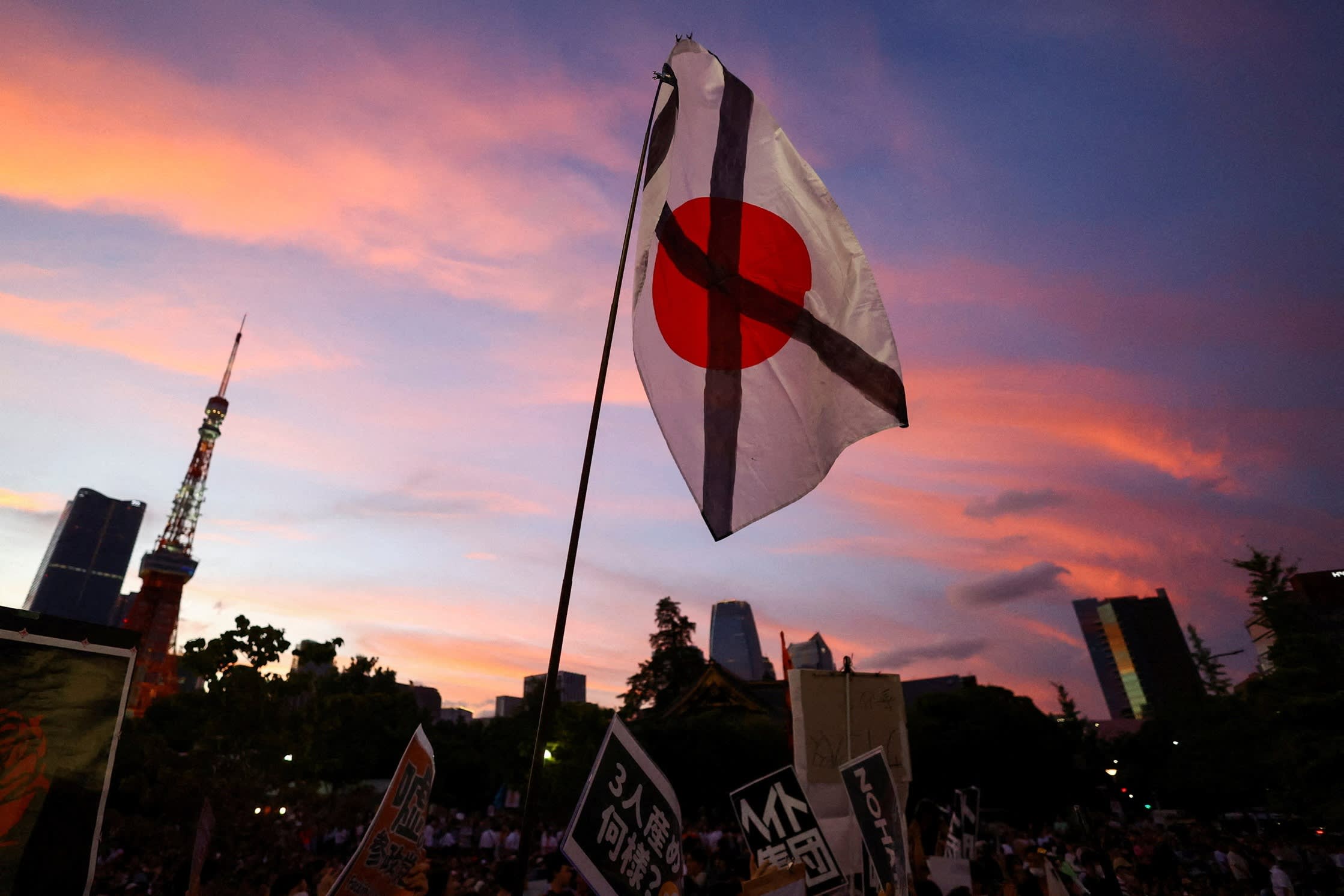After an election that has reduced Japan’s Liberal Democratic party to its weakest parliamentary position in 70 years, Prime Minister Shigeru Ishiba vowed to remain in office to protect the country’s politics from instability. Many suspect, however, that he has guaranteed months of turmoil.
Ishiba’s party, which has governed Japan for all but a few years since 1955, has lost its majority in the lower and upper houses of parliament. Ishiba was in charge in both elections — a snap lower house election called in October and Sunday’s vote for half the upper house seats.
His tenure catches the LDP at a vulnerable moment: its traditional rural support base is ageing and shrinking, and younger Japanese voters have proved more susceptible to online campaigning and social media populism than the party’s grandees anticipated.
“The LDP struggled to balance this desire to appease the general public and the conservative base. They have seemingly lost both sides to some extent,” said Rintaro Nishimura, associate at The Asia Group consultancy.
The LDP and Komeito, its coalition partner, are expected to seek co-operation with other parties on a policy-by-policy basis, a strategy that could prove a recipe for instability.
But if Ishiba resigns — as some analysts and people within the LDP say he could by the autumn — the party could struggle to find a successor. That would plunge Japan back into the chaos of the late 2000s, when the country rolled through six prime ministers in five years, said one former cabinet member.
“Japanese politics have changed but the party does not yet have a leader who can deal with that,” said one veteran LDP member. “There are strong figures, but none of them has all the elements that are needed to bring back the voters who left, communicate a vision for the economy and work with the new parties which are now quite important.”
A snap election now would be a disaster, the person added.

Sunday’s election, and the LDP’s current crisis, comes as Japan is undergoing significant economic stress: prices are rising after decades of stagnation, interest rates have crept into positive territory as the Bank of Japan “normalises” monetary policy and tourist and foreign resident numbers have soared.
The moderate Ishiba has been the wrong leader to avoid that shock, said one long-term LDP adviser. Some party members, in private, have even coined the phrase Miga: “make Ishiba go away”.
The uncertainty that hangs over Ishiba and the LDP’s power to govern also comes as Japan is pitched into fraught trade negotiations with its closest ally, the US. Ishiba has a little more than a week before Japan’s export industries are due to be hit with 25 per cent tariffs — despite the country’s status as the largest direct investor into America for the past five years.
The yield on the Japanese 10-year bond rose 0.07 percentage points in early trading on Tuesday before falling back, amid concerns the LDP would be forced to offer consumption tax relief, which would further worsen the government’s fiscal position.
Many working Japanese people — who see themselves as the victims of rising food and property prices, below-inflation wage growth and a political system that favours the elderly — responded by taking their votes elsewhere.
The beneficiaries, the populist Democratic Party for the People and Sanseito, both won more than a dozen seats in Sunday’s election after campaigns that focused on securing wage increases, growing wealth inequality and, in Sanseito’s case, anti-foreigner “Japanese first” rhetoric.
“The DPP and Sanseito have come in with easy-to-understand, single issue slogans that have really resonated with voters,” said Nishimura.
On paper, the LDP’s setback was fairly narrow. Its bloc fell short of a majority by three seats, and performed better than exit polls and pre-election forecasts had feared.
But several observers suggested the election pointed to a new political landscape, with the rise of far-right populism akin to that in the US, UK and Europe. The question, they said, was whether populist parties could become a lasting feature of Japanese politics.
The LDP’s main constraint — as well as the explanation for its longevity — has been its attempt to be the party for everyone, said Tobias Harris, a political analyst at Japan Foresight. If it shifts the balance too far to accommodate young urban Japanese, it risks alienating its rural base, and vice versa.
“The LDP lost millions of votes relative to last year,” said Harris. “That creates two crises for the LDP: you have the immediate crisis of getting legislation and budgets through parliament, and the bigger crisis for the LDP itself.”
“I do not think that Ishiba steers the party through either,” he added.
When the LDP last lost power in the late 2000s, Japan was struggling to escape its long phase of economic stagnation. The party’s defeated leader, Taro Aso, conceded at the time: “We have not been able to wipe away the long-standing dissatisfaction with the LDP. We must accept it as our fate.”
The party did recover. Its loss on Sunday has “sent a message to the government”, said Robert Ward, Japan chair at the International Institute for Strategic Studies. “I wouldn’t underestimate the LDP’s ability to regroup.”


